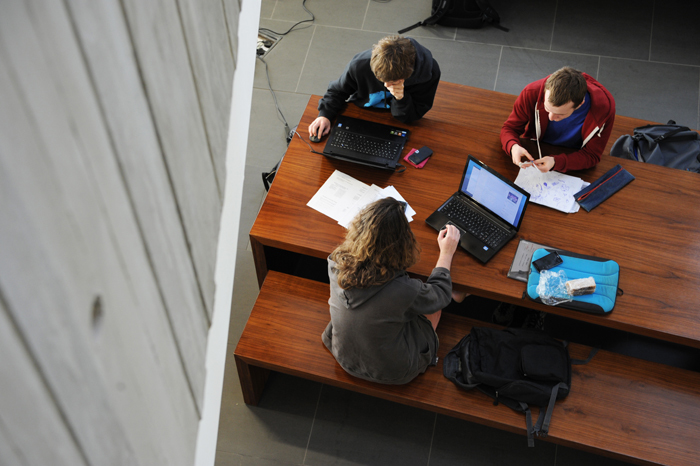Unbundling higher education
15 March 2017 | Story by Newsroom
Professors Neil Morris and Laura Czerniewicz, from the universities of Leeds and Cape Town respectively, are the principal investigators on the 26-month project, The Unbundled University: Researching Emerging Models in an Unequal Landscape, which will run from October 2016 to November 2018.
The project will look at the “unbundling” of higher education and ask if the traditional university – offering a single package for many aspects of the student experience, including teaching, content and assessment – is undergoing changes in the nature of its provision.
It comes at a time when the UK sector is moving towards increased marketisation as a result of government initiatives. In South Africa, universities are seeking ways to level the field for students who come from highly diverse socioeconomic backgrounds, with great disparity in their access to technology.
The prevalence and take-up of massive open online courses (MOOCs) globally has shown that there is increasing interest in more flexible models of higher education, especially those evolving into accredited courses.
“Worldwide many universities are looking at MOOCs and how they might be integrated into other university provision – a form of 'unbundling' and 'rebundling'. While this is in its infancy, it is a growing trend. For example, Professor Mark Solms' well-received MOOC, 'What is a mind?', which runs on the FutureLearn platform, has been offered as a taught formal course as part of the Semester Study Abroad program for 2017 at UCT,” said Sukaina Walji, UCT MOOCs project manager.
The MOOCs at the University of Leeds, for example, offer credit that can be used towards a degree at any university that will accept it, or to build a portfolio of awards from a range of universities and other accrediting bodies, in lieu of a degree.
Higher education is evolving
“As well as looking at how digital technology is disrupting higher education, this research will explore how the involvement of alternative providers and external partners is changing the way higher education is offered,” said Professor Neil Morris, director of digital learning at the University of Leeds. “It is an exciting example of international collaboration between two research-intensive universities operating in very different contexts, but facing overlapping challenges.”
Associate Professor Laura Czerniewicz, director of UCT's Centre for Innovation in Learning and Teaching (CILT), explains how the unbundling project got started.
“The UCT–Leeds partnership was seeded by a conversation at a workshop between two of the researchers on the project which revealed a mutual commitment to overcoming inequality in higher education and a passion for understanding the ways that technology can ameliorate or exacerbate new and existing divides.”
Over the past few years, flexible online courses and qualifications have boomed, offering opportunities for increased numbers of learners to access education and therefore contributing to economic prosperity.
“While there are clearly opportunities offered by new models of provision, there are concerns that 'unbundled' higher education can lead to fragmentation of the curriculum, increase inequalities among the student body, create a disconnect with the holistic benefits offered by a university experience, and create concerns about quality if a wide range of providers are involved,” said Czerniewicz.
“We want to look at these risks and at whose interests this unbundling is serving. Outputs from the project will be shared with higher education decision makers and government policy makers to help them to make informed decisions about future initiatives in this area. The universities of Leeds and Cape Town are similar types of institutions addressing similar issues in different contexts in ways that can only enrich the study.”
The research is funded by the Economic and Social Research Council and the National Research Foundation and is one of five collaborative research projects about higher education in South Africa.
Story Chido Mbambe. Photo Michael Hammond.
 This work is licensed under a Creative Commons Attribution-NoDerivatives 4.0 International License.
This work is licensed under a Creative Commons Attribution-NoDerivatives 4.0 International License.
Please view the republishing articles page for more information.










